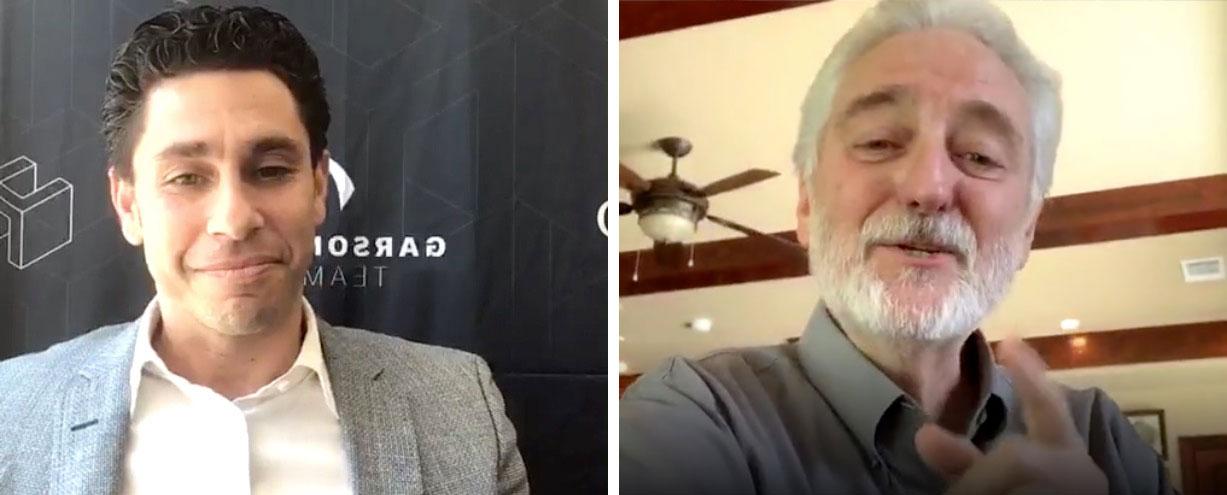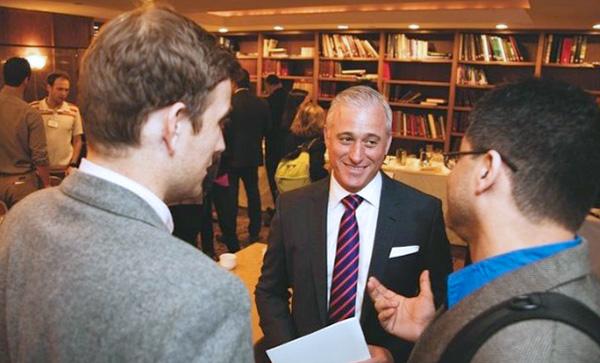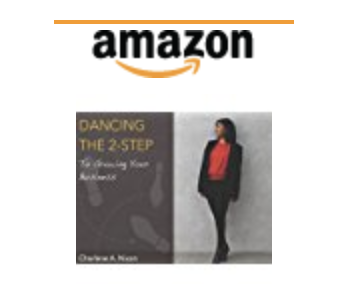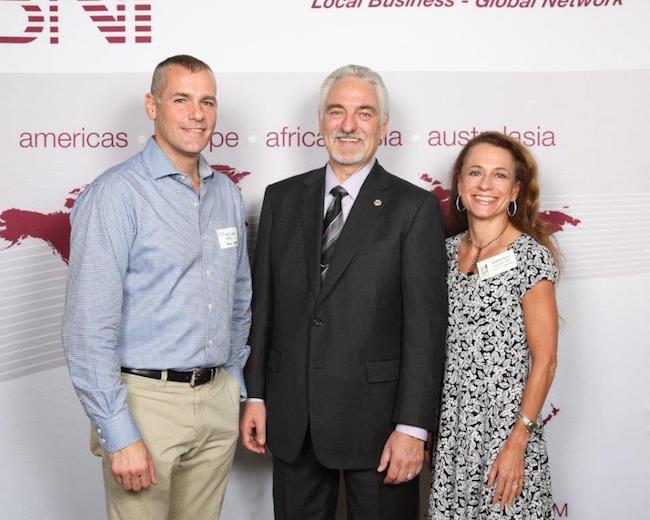Manhattan BNI News
BNI's Official Diversity Statement
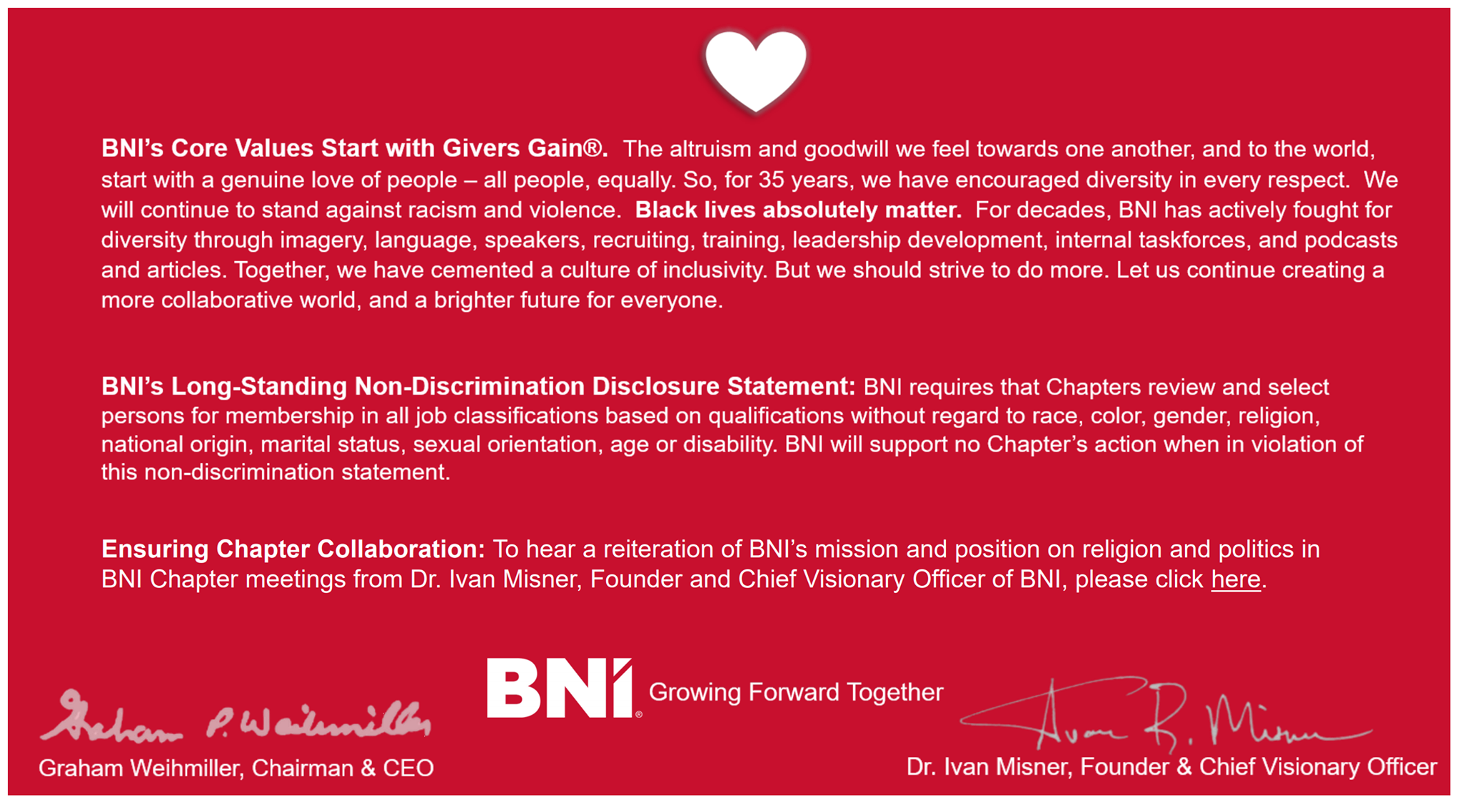
Manhattan BNI Celebrates Our Longtime Members:
| More Than 20 Years: | More Than 15 Years: | More Than 10 Years: | More Than 5 Years: |
| Cabot Marks Charles Vorbach Cliff Rubin Eamon Walsh Edward Smolka Jacob Letowsky Jacqueline Frank Kelly Cole Michael Calica Randi L. Karmel Robert Weinberg Thomas Regalbuto Todd Cymbol Todd Feldman |
Alan Bennett Alex Constantopes Andrea Wolff Belinda Jackson Bill Allen Brian McCafferty Charles M. Arnold Christian Zebicoff Cindy Goodman David A. Kaminsky David Goldstein David Sachs Dawn Cardi Diana Maltz Donald Wall Donna Zanger Douglas Niosi Elisabeth M. Kovac Gail Bass Gary Cohen Glenn Edelstein Helene Pangalos Howard Globus James Addy Jay Zimner Jeff Nolan Jeffrey Levine Jeremy Sherring Jimmi Circosta John Parisi Jolie Ann Calella Jonathan Feinsilver Joseph Tremiti Joshua Spiegel Judah P. Stoller Keith Bebick Keith Lulewich Keith Philipps Kenny Weitzman Kwok Man Lisa Abiraj Manuel Mercader Marc Silverman Mark Chapman Matthew Lombardi Michael Goldfine Naomi Halpern Paul Babych Peter Dressel Phil Koeber Richard Krasner Robert J. Smith Robert Russo Ruth Baumann Samuel Rizzo Stacy Francis Stefan Greenberg Steve Millhollon Steven Mancinelli Stuart Tash Terry MacAvery Thomas Toy Wayne Lee William Fischer |
Adrian Ozarchievici Alan Lustrin Alan Markowitz Albert D'Angelo Allan Pearlman Amparo Vollert Amy Noelle Anand Kapasi Andre Soluri Andrew Kahner Ariel Dybner Barry Cooper Benjamin Wolf Billy Joe Young Brett Deutsch Brian Murphy Brian Zimmet Brittany Greer C. Picara Vassallo Carey Davis Carol Offman Cathy Hobbs Christine Wong Cliff Schneider Conrad Strabone Dani Nodelman Daniel O'Hara Daniel Vitolo David Drucker David Dukoff David Gouldstone Deborah Blumenfield Deborah Donenfeld Elise Langsam Elliot Zelinger Eric Turk Eugene Gozenput Fred DaCosta Geoffrey M. Prisco Guy Menahem Harriet Zaffoni Homitch Grabowski Howard Karp Ippei Iwashiro Jane Becker Janice Roven Janine Sarna-Jones Jarad Siegel Jared J. Finkelstein Jason Kapoor Jeffrey Anderson Jeffrey Bernard Jeffrey Lender Jeffrey Peyser Jeffrey Tucker Jeffrey Weiskopf Jeremy Peyser Jessica Allen Jessica Wong Jim Farah Joe Dec John Crane John Fiorito Jonathan Ratchik Jordan Metzger Joseph Benincasa Joseph Gordon Joseph Jones Josh Doyle Joshua Newman Joshua Perlman Juin Wang Ken Sassano Kristin Palmeri Lawrence Adler Lawrence Chaifetz Leslie Tilles Marc Braunstein Mathew Goldberg Matthew J. Fein Matthew Kesten Michael Bedell Michael Knuff Michael Lulkin Michael Nerenberg Michael Todd Mueller Olga Savelov Pamela Brenner Paul Donas Peter Chace Pierre Janssen Ralph Robbins Ravee Shrinivas Raymond Hamlin Rebecca Buchanan Richard Langsam Rick Lasher Robert A. Weinstein Robert Kern Jr. Robert Schlesinger Robert Shapiro Robert Soler Ronald Rauschenbach Rosemary DePersia Roy Fenichel Ryan Smith Sally Brooke-Smith Sandy Silverberg Scott Valins Serge Lazarev Seth Hochman Seth Kamens Sharon Becker Simone Assboeck Stavros Sitinas Stephanie Wilson Steven Conyers Steven D. Fleischer Steven Esses Susanne Schropp Terry Ganer Thomas Newman Tonja Adair Victor Deutsch Walter VanSchaick Jr. Wesley Stanton William Bolls Zack Rawlings |
Aaron Krantz Aaron Mazor Aaron Pierce Adam Brett Kapner Adam Katzman Adrian Levin Agnieszka Chomicz-Grabowska Akiva Cohen Alec Dadisman Alessandra DeLaCruz Alex Mahgoub Alexander Sakin Alexandra Cohen Alison McQueen Alison Orlando Alix Bien-Aime Amy Horowitz Anatoliy Chistov Andrew Rosenberg Andrew Yacyshyn Ariel Peikes Arthur Mandell Audrey Schwartz Avi Ashkenazy Barry Koven Bart Eagle Ben Prusky Bradley Ziegler Brett Semenetz Brian Dusseau Brian Kaplan Brian Rothmeier Briana Elledge Bryan Johnson-Xenitelis Bryan Winston Carl Schinina Carlos Dolmo Carson Alexander Charles Rosenbaum Chirag Mody Christine Ricci Christopher Howard Christopher Milazzo Christopher Seleski Christopher Tsanos Claudia Hernández Corey Anker Craig Faller Craig Notte Daniel Gotlieb Daniel Jacoby Daniel O'Connor Daniel VanHall Daniel Weber Danielle Diaz Darrel Upson David Binson David Breitstein David Goldstein David Klyman David Llanos David Perry David Stern David Wald David Woods Dean Kuhlkin Debra Seaton Diane Close Dianna O'Doherty Diego Lares Donald Cutler Edward Lederman Edward Tan Eileen Vazquez Thornton Elizabeth Eiss Emma Tang Eric Lituchy Eric Lorenzo Eric Mendelsohn Eric Williams Eva Grodberg Frank Pizzurro Gary Ireland Gary McNally Gerard Dunne Greg Smith Guy Tomlinson H.P. Sean Dweck Hannah Rosenblum Heshy Feldman Hormuz Batliboi Howard Glick Ian Scott Igor Noble Ilan Weiser Irina Zheleznyak Jackie Siracuse James Lombardo Jr. Jason Barash Jason Ritchie Jason Rodriguez Jason Wang Jay Wright Jeanie Engelbach Jeff Detweiler Jeffrey Pearson Jeffrey Singer Jen Lee Jennifer Mirsky Jennifer Wilkov Jerry Gemignani Joan Pelzer Jodi Materna Joey Antar John Cipollone John J. Lynch John Mark Shaw John Wiltshire Jon Smilowitz Jonathan Hoener Jonathan Tauzowicz Jose Gomez Joseph Whitney Judith Weil Julie Alcee Justin Waiser Justin Weitzman Katie McCann Kayla Klinge Keith Emmer Kelley Joyce Kenneth Traficante Kris Nejat Kyle Sennish Laiby Klein Lawrence Teitle Lee Hendelman Leona Krasner Leonardo Puma Lina Stillman Luis (Berto) Antunano Lynn Markel Mahmoud Arjomand Marc Solomon Marcela Barraza Margaret Enloe Maria Octavio Mark D. Friedman Mark Foley Marlon J. Altoé Martin Novar Mary Chandrahasan Mary Grimm Mathieu Aimlon Matthew DeSantis Matthew Masseo Matthew Walters Melanie Fox Melissa Rapoport Mia Poppe Michael Blumenfeld Michael Haltman Michael Herz Miguel Gonzalez Mihal Gartenberg Monica Liang-Allen Naeem Hussain Nancy Dale Nandar Matari Natanel Benisti Natasha Moskvina Neal Bass Neha Bhalani Neil Burstein Nicolas Zapata Nicole Fiene Noa Lessing Nydia Shahjahan Omar Calderon Patricia Goodwin Patrick Anarumo Paul Hyun Peter Karoczkai Philip Berkeley R. Diego Velazquez Rachel Haskell Ralph Rodriguez Renee Radenberg Richard Bloom Richard Goldstein Richard Kistnen Rick Biolsi Ritu Saheb Rob Slifer Robert Pecha Robert Rawdin Robert Steele Rosanna Roizin Ross Arnel Sanford Miller Sari Rosenberg Scott Bernstein Scott Harris Sean Mathey Seaver Wang Sebastian Triscari Sergio Aguirre Sibongile Yancy Simon Barcoe SJ Chapman Sorel Roget Spencer Friedman Stan G. Horowitz Stephen England Stephen Goldstein Steve Polyakov Steven D'Andrea Steven Geiger Steven Golodny Steven McMahon Steven Seltzer Susan May-Mclean Susan Terwilliger Terrylynn Smith Thomas West Tim Lewis Tim Madden Tom Costagliola Tom Georges Tom Hayes Tom Oddo Toni Dolce Bove Tony Boehm Tony Margiota Ty Buckelew Veronique Verscheure Victoria Rivera W. Mathew Sakkas Wayne Wolf William Clanton Yishai Shapir Yogi Patel Zeke Zimmerman |
Manhattan BNI Chapter 12 - 2025 Summer Softball Day
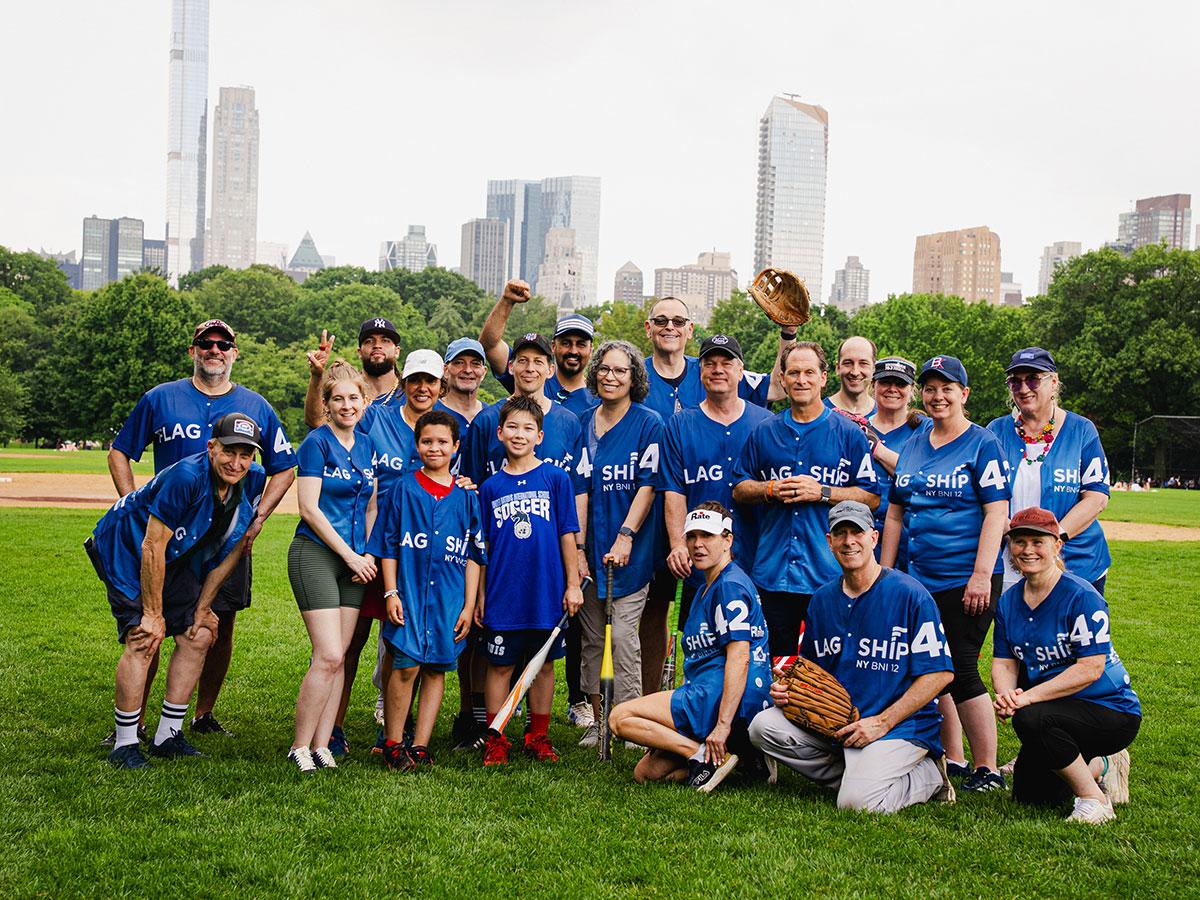 We Had a Terrific Softball Day this Summer!
We Had a Terrific Softball Day this Summer!
See more photos on our Chapter Website
Manhattan BNI Chapter 11 - 2024 Charity Softball Tournament
Here's Manhattan BNI's Millennium Chapter participating in a Charity Softball Tournament in Central Park's Great Lawn, the perfect venue!
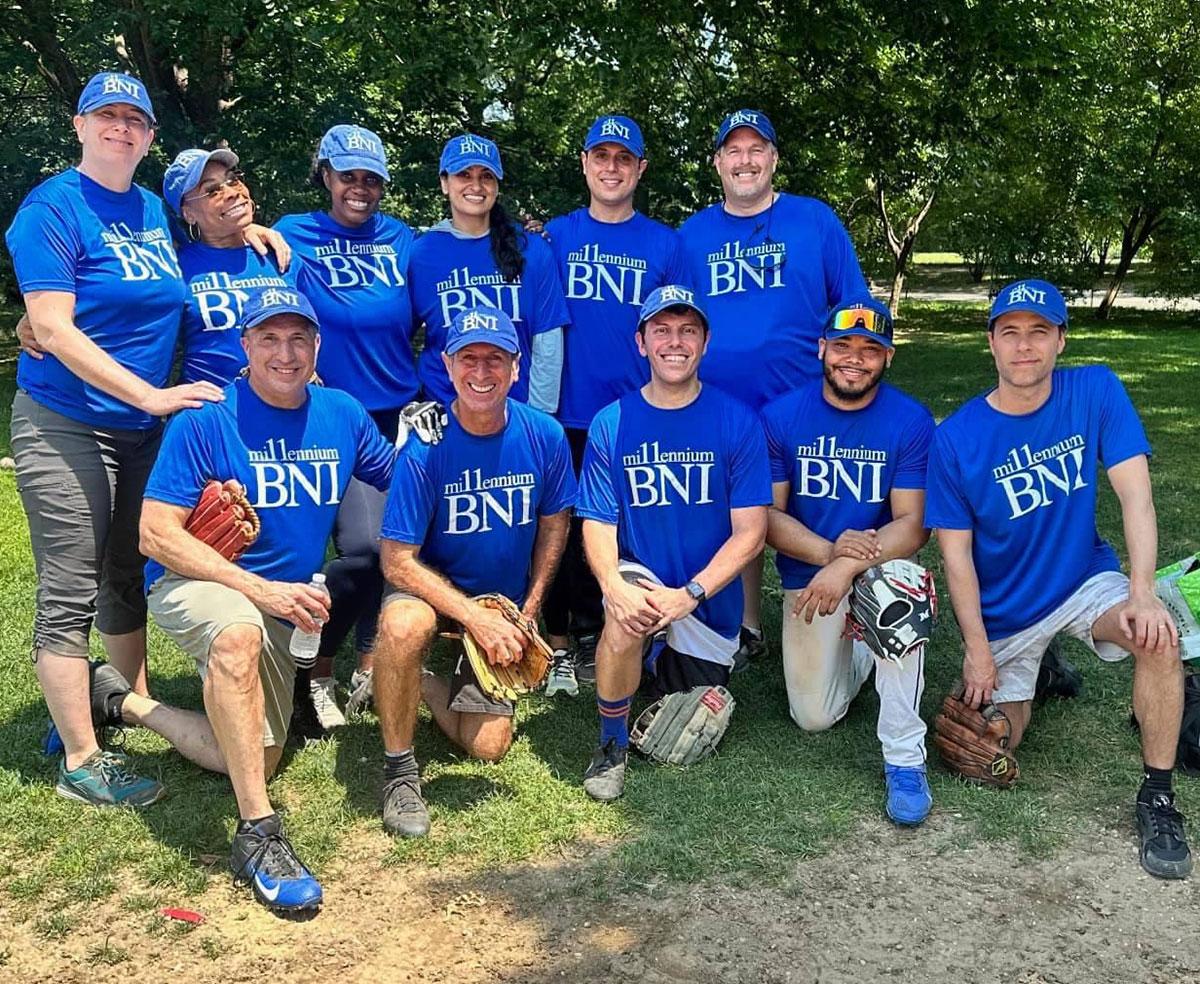
Despite all of the aches and pains they report feeling today, a good time was had by all - and they raised some money for Marble Jam their preferred Not-for-Profit!
BNI 11 is a Gold Sponsor of Marble Jam, dedicated to improving the lives of children, adolescents, and adults by providing them with various creative programs to express themselves and overcome their personal challenges.
Manhattan BNI 2023 Softball Tournament

Manhattan BNI Chapters come together for the annual softball tournament for charity! Chapters 1, 12, 53, 62, and 70 played 5 games each. Chapter 12 brought the trophy home!
Live Instagram Interview with Dr. Ivan Misner
BNI Chapter 54's Ryan Garson landed a Live Instagram Interview with Dr. Ivan Misner, "The Michael Jordan of Networking."
National Chess Master Evan Rabin from Manhattan BNI 30 Interviews Dr. Ivan Misner
OPPSwell Connects Business Buyers with Small and Large Business Suppliers
OPPSWell is the Connector!
No Middle Women, No Middle Men, No Middle People.
The Premier Global B2B site seamlessly integrating procurement needs into a business social networking platform.
Dr. Misner brings his "Ask the Founder" Webinar to Manhattan BNI
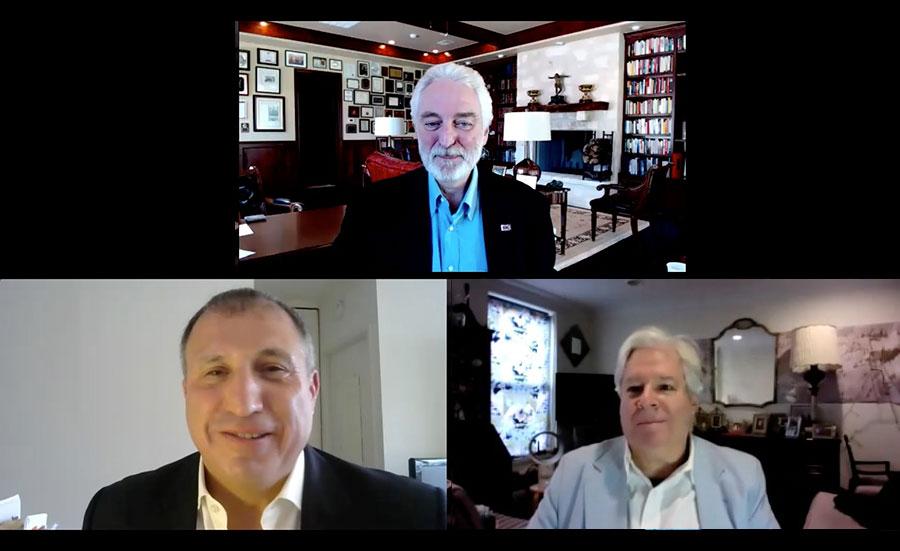
Click to View
Ivan Misner and Manhattan BNI's Todd Cymbol and Marc Silverman
presented an "Ask the Founder" webinar for our region in September 2020
Professional Networks Are Zooming Through the Coronavirus Pandemic
Many business groups are meeting online—some gatherings have excellent results, others fall flat.
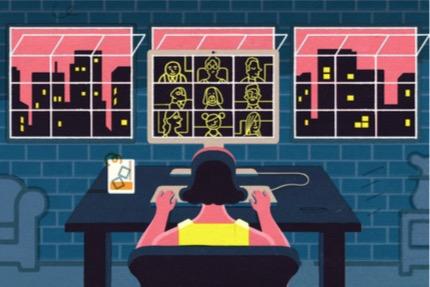
Christine Wong and Brooke Hubbard from BNI Chapter 8
are mentioned in this Wall Street Journal Article.
by Anne Kadet
May 6, 2020
When a handful of New York City businessmen met on Zoom for a 6:30 a.m. networking meeting late last month, the discussion turned to the challenges of networking itself in the coronavirus lockdown era.
“My issue is trying to find other ways to connect with people,” said Ellisen Wang, an email- marketing copywriter who lives in Queens. “I used to go to a lot of networking events and meet with a lot of business owners. Now that Covid-19 happened, I can’t really do that anymore.”
Yes, until the pandemic hit, New York City offered a truly dazzling professional networking scene. On any given day, there were dozens of breakfast, lunch and cocktail events targeting everyone from Asian professionals to pet-tech entrepreneurs. Now, in a time when people need new connections more than ever, many such gatherings have been suspended. Others carry on as Zoom meetings, with varying degrees of success.
Manhattan real-estate attorney Christine Wong says several of her networking standbys, including a women’s group and a lawyers’ community, have gone silent. Her chamber of commerce groups and Business Networking International chapter, meanwhile, moved online. “I’ve gotten stuck in the world of Zooming,” Ms. Wong said.
The move to Zoom has been smooth for some groups. At a recent meeting of Ms. Wong’s BNI Chapter 8, the business-networking program continued the same format the group followed pre-lockdown, when they met every Tuesday for breakfast at a Mexican restaurant near Grand Central. The usual 15 regulars were in attendance.
The difference: A larger showing of newcomers, as the group is waiving its usual $20 guest fee. Fresh faces included a yoga instructor, a leadership coach and a personal stylist.
“Thank you for joining us in this weird scenario online,” said chapter President Brooke Hubbard, Zooming in from her living room.
Everyone got 45 seconds to introduce themselves and make a pitch.
“Even in this trying time, there are great parts of a portfolio that have done well. Health care and technology are up for the year,” said an asset manager.
A promotional-products dealer offered a rhyme: “I love my job, I love what I do, let me get branded items for you!”
Ms. Hubbard, a social-media strategist and business owner, said these Zoom gatherings produce more post-event meetings among participants. “People can quickly hop on a Zoom call rather than finding a place to meet for coffee,” she said.
Some online networking events, however, fall flat. One gathering I attended last week, billed as a local “Entrepreneurs Referral Networking Zoom,” attracted eight participants, half of whom kept their cameras off. After introductions, an awkward silence descended.
The organizer tried prompting participants to speak: “Doug, did you want to say anything?”
“Just hi,” Doug responded.
A woman broke the lull by typing into the chat window: “I can’t get my system to work.”
Benjamin Einersen, a content strategist and agency founder who was co-organizing a fast- growing Manhattan networking circle geared toward entrepreneurs and professionals, says the move to Zoom altered nearly every facet of the enterprise, which had been drawing hundreds of guests.
Now that the meetings have temporarily gone online, they typically are drawing 20 to 25 participants. “It’s harder to get people to show up, which seems counterintuitive,” he said.
And the conversational tenor has shifted. People no longer approach with a selling mentality. They ask how they can help. “There’s a required sensitivity now,” Mr. Einersen said.
Networking chats tend to be deeper and more personal these days, as people connect over shared challenges, said Jeff Zalewski, executive partner of Performiforce LLC, an outfit hosting fee-based online networking events for New York City-area professionals. The pandemic, he said, “is getting people to slow down and communicate with their connections in a way that they should have been doing all along.”
Still, it can be hard to make connections when there are dozens crowding a Zoom room. Some networking events rely more on a guest speaker format, with a Q&A at the end.
Virtual 5 O’Clock, a free, biweekly Zoom meeting that evolved out of an informal in-person happy hour hosted by three Manhattan friends, recently featured local entrepreneur Paul Szyarto who noted that despite his rough upbringing—“dad tried to kill us”—he still managed to attend several prestigious universities, visit 30 countries, create 27 companies, raise a family and compile a “Rolodex of hundreds of billionaires.”
The secret to this transformation? Courage, he revealed, drawing on the examples of Rosa Parks and the Wizard of Oz’s Cowardly Lion.
Mr. Szyarto advised guests to be pandemic-era doers: “Don’t be a drone, be a change agent!”
While most of the 38 attendees appeared content to simply observe, there usually are many private side conversations transpiring in the platform’s chat window, with people making both business and romantic connections, said co-organizer Mindie Barnett, a public-relations executive.
When the lockdown ends, organizers say, Zoom networking will live on. While some find the medium unsatisfying or even annoying, many are loving it.
“I have my headphones, my camera of choice, I have my lights—everything I need to feel the part,” said Virtual 5 O’Clock’s co-organizer Layne Frank, a Manhattan businessman. “This is my comfort zone, my world.”
Read the article in The Wall Street Journal
A Huge Shout-Out to BNI Chapter 24's Akiva Cohen
Using his legal prowess to make the world better by helping those affected by COVID-19
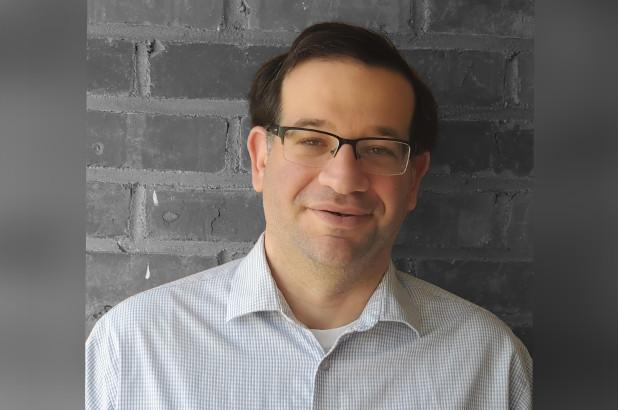
Hero of the Day: NYC lawyer offers pro bono legal help amid coronavirus crisis
Courthouses are empty and proceedings delayed as the city battles the coronavirus, but Manhattan lawyer Akiva Cohen is still taking on new clients, offering free legal aid to those affected by the crisis — even as he battles the bug himself.
“I knew my business was going to be slowing down anyway, so I was going to have time on my hands,” the 41-year-old lawyer told The Post as he nursed a mild case of COVID-19.
“Times like this, everybody’s got to do what they can to help each other out. That’s really all we can do, is take care of each other.”
Cohen, a commercial litigator and intellectual property attorney, posted on Twitter on March 22 offering to help anyone with coronavirus-fueled legal issues, all pro bono.
“[New York] people—these are insane, trying times. If you need any legal help trying to deal with the impact of Coronavirus on your life or business, reach out. No charge,” he wrote.
Since then, the Long Island resident said he’s been flooded with a “crazy” level of notifications, and has begun fielding comments and messages from people in need of legal help.
“I’m just trying to get to as many as I can get to,” he said.
The altruistic attorney has been tackling issues from small business struggles to paperwork problems, something he says could be handled virtually.
“The very first real substantive response that I got a couple weeks ago was from people who were like look…we want to do healthcare proxies, but we’re in quarantine and can’t have witnesses because nobody can come in and witness it, what do we do?”
“These questions are not really questions that come up all that often in normal times,” explained Cohen, who helped the pair navigate finding a witness while staying socially distanced.
Most of the responses have come from freelancers frantic over unpaid invoices, Cohen told The Post.
“It’s mostly been, ‘Hey, people aren’t paying me,'” he said.
“You’ve got people who need to be paid but you also have people who, for legitimate business reasons, may not have the money. So you’ve got to try and walk that line of, let’s figure out what we can do here that is survivable for all of us. Because the point is, we’re all trying to survive this together.”
“When you’re talking about one of these mom-and-pop shops, you don’t want to be bringing out the bazookas and destroying their business,” he added.
The lawyer told The Post that his assistance “adds a little bit of weight” to virus-related conflicts—but for questions outside his expertise, he has no objection to calling in colleagues.
“Other attorneys have, when they saw my tweet, chimed in and said, you know what, I’d be happy to help with this if you could use the help. People are really stepping up all over the place,” he said.
“It’s good to have sort of a network of specialists that you can look to to help you answer these types of questions, and most people don’t. And that’s what I’m trying to offer people.”
His new clients have been grateful to get the legal assistance while the jury’s out, but Cohen brushes off the praise.
“People that I’ve helped and people that are just seeing this happen are like, ‘Oh my god, you’re amazing.’ … No, this is basic living-in-a-society stuff. I have the ability to help, I can do it without harming myself and my family — that’s my job.”
The veteran litigator told The Post he was especially inspired to lend a hand by family members on the front lines of the pandemic.
“My wife is a nurse, she works with chemotherapy patients. She saves lives. My mom’s a nurse, I’ve got other relatives who are front line fighting this off. If I can use this to do some level of good, that’s wonderful. I’m gonna have the time, I may as well put it to good use.”
Now, More than Ever
Business people need to network to stay in business
View Full Screen
BNI Boot Camp with Chapter 66 in Central Park
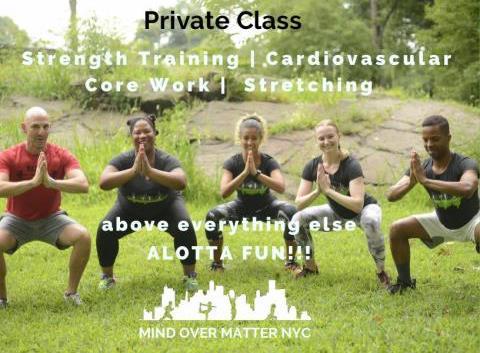
As a team building exercise BNI Chapter Super 66 lived up to its moniker and decided to enlist the help of one of its own members. Joshua Margolis who is the Founder and lead Fitness Consultant with Mind Over Matter Health & Fitness (affectionately known as M.O.M. www.mindovermatter.nyc) organized and conducted a BNI Boot Camp class in Central Park.
The purpose was two-fold. To bring about better cohesion within the chapter, and above everything else have some fun and laugh at ourselves. Suffice to say a lot of calories were burned in the process.
While most One-to-Ones happen in an office or a coffee shop, this group pushed the parameters of a "dance card." Sometimes one of the best ways to get to know another member is through exercise. Ultimately that leads to building a better relationship and a better understanding of one another. The competition, albeit friendly, that took place is yet another way. It truly brings out the best in all of us. As Joshua stated "You don't really know a person until you're in the trenches with them."
This was a perfect way to go outside the box of the typical BNI dynamic, all the while enjoying the company of one another. A good time was had by all and there were no injuries to report. Everyone walked away under their own power with most of their pride still intact. Already everyone is looking forward to the next time around.
Director Consultants from Three Continents Meet at Manhattan BNI
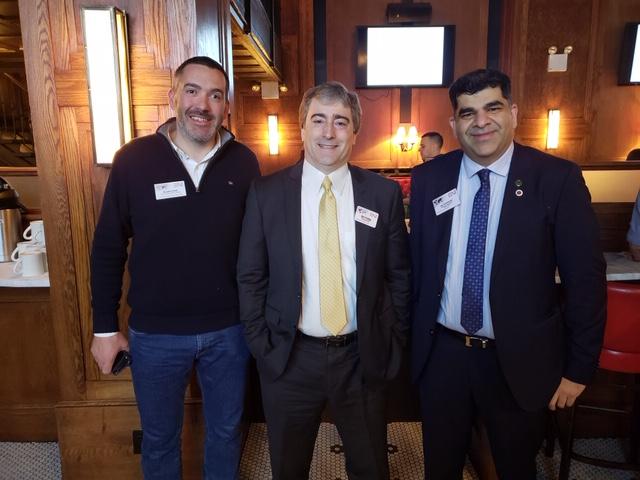
Nicholas Gorski, Director-Consultant, BNI Southeast France, LinkedIn
Ben Prusky, Director-Consultant, Manhattan BNI, LinkedIn
Jay Kantawala, Director-Consultant, BNI Sparkle, Mumbai South, LinkedIn
Crains NY Article
How to win business and influence people in NYC's cliquey and competitive Networking Groups
Real estate attorney Jay Zimner at a BNI meeting at the Cornell Club.
Dancing the Two-Step to Growing Your Own Business
 Charlene Nixon, Manhattan BNI Director Consultant, just released her newest book
Charlene Nixon, Manhattan BNI Director Consultant, just released her newest book
BNI Members - 30% discount when purchased directly at http://aletanetworking.com/book/
Visit the website and enter Discount Code BNI30
BNI First Thing in the Morning
by Chapter 60's Charles DeBenedittis
BNI National Conference in Savannah, Georgia
William Bolls and Andrea Kent with Ivan Misner at the BNI National Conference in Savannah, Georgia
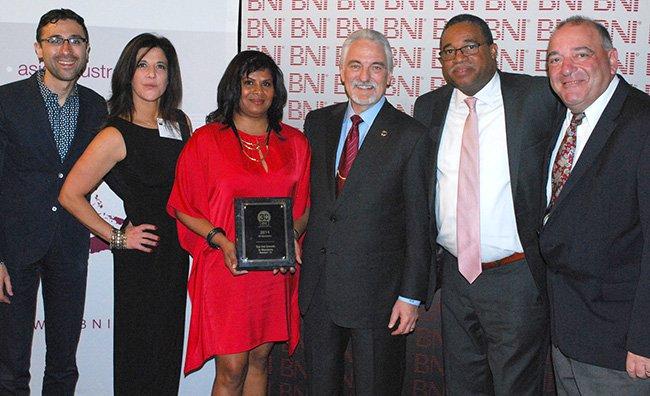
JP Pullos, Jacqueline Frank, Charlene Nixon, Michael Brathwaite, and Todd Hallinger
with Ivan Misner at the BNI National Conference Awards Dinner in Savannah, Georgia
Five Days, Five Lunches, Twenty-Seven One-to-Ones
My BNI Spring Lunch Project
by Walter C. Ramin
As a devout BNI member, I continually ask myself, “How can I pass more referrals to fellow BNI members? How can I really connect with the members that are inside my chapter, but outside my power sphere, on a deeper level?” Giver’s gain.
This is where I launched “My Spring 1-2-1 Lunch Project.”
I made five lunch reservations over the course of one week. Taking advantage of restaurant week pricing at some of NYC's best restaurants, I sent a mass email to the chapter inviting everyone to pick a day that worked for their schedule. The days filled up quickly with members claiming their seats. My lunch project was "sold out" almost instantly.
I had each lunch table full of a random assortment of BNI members, keeping the number to a maximum of 6 members. Regardless of power sphere, or industry, my goal was to dig deeper and find the unlikely connections that lie therein. I knew this time had to be valuable for everyone at the table, as well as myself, so instead of referrals which are “5’s,” I wanted to dig deeper and learn about their “1” referrals.
So, using the referral slip as a point of reference, I pointed out that a "5" on the thermometer indicated a hot referral. As an example, last week, I overheard one of my clients complaining about their office computers. They were slow and virus-ridden. I referred my chapter's IT person, Brian Murphy of Murph Consulting, whom was there the next day, fixed the problems, and collected a check. An easy "5", right?
Now, I thought, “What about the other clients I have, who one day, may need IT support?” “Could I make those introductions now?” My clients trust me. I can simply make an introduction. We all give testimonials about each other at our weekly meeting, I can give a great testimonial to my best clients about a member of BNI that could potentially be an excellent source of business. This introduction is more “You should know this person,” a “1” referral, as opposed to “This person has a problem, let’s solve it,” a “5” referral.
With this in mind, I asked everyone around the lunch table, “Who are your “1’s?” What kind of passive introductions can I make for you? Who are your best client types? With whom do you do your best work?“
What I had learned really opened my eyes and drew some great connections between our chapter members. I learned our Trust and Estates attorney would like to be introduced to Nursing Home administrators, as they are a good source of referrals to families. I learned our printer knows the ins-and-outs of print campaigns for not-for-profit organizations and would like to meet more. I learned our residential Real Estate agent would like to be introduced to other real estate agents outside of NYC because empty-nesters moving back to the city from the suburbs. I also discovered other connections such as, the matrimonial attorney refers to the mortgage broker for refinancing before a divorce and the medical marketing expert and the printer both know and want to meet pharmaceutical reps.
This project gave us the opportunity to mix it up and connect on a much different level, allowing us find these new and unlikely connections with members new and old. It was a much deeper and meaningful discovery which I know will lead to more referrals and more close business. The biggest take away from “My Spring 1-2-1 Lunch Project” was how we can not only continue to listen for new opportunities, but also be intentional and proactive in creating more opportunities for our chapter.
Walter C. Ramin is a Senior Account Manager at Merchant Department and 5-year BNI Member of Chapter 53. He loves referrals to small-to-mid sized locally-owned businesses.
BNI Connect
BNI's Worldwide Platform for Members
